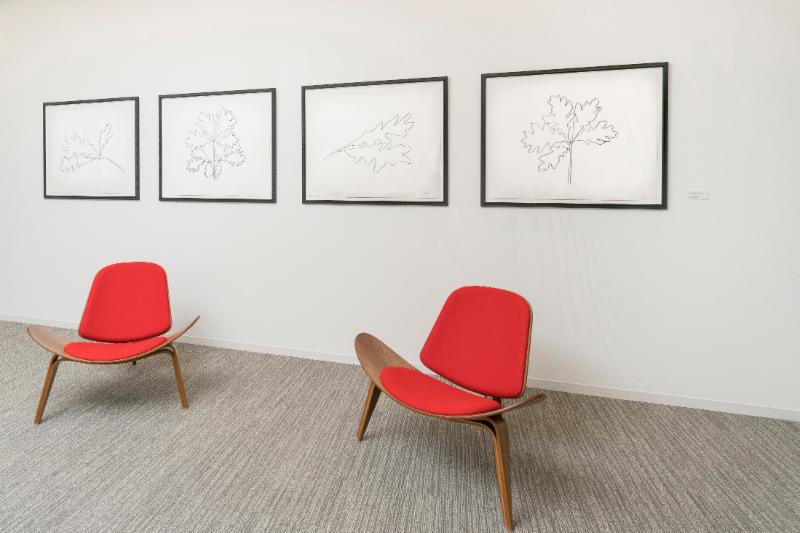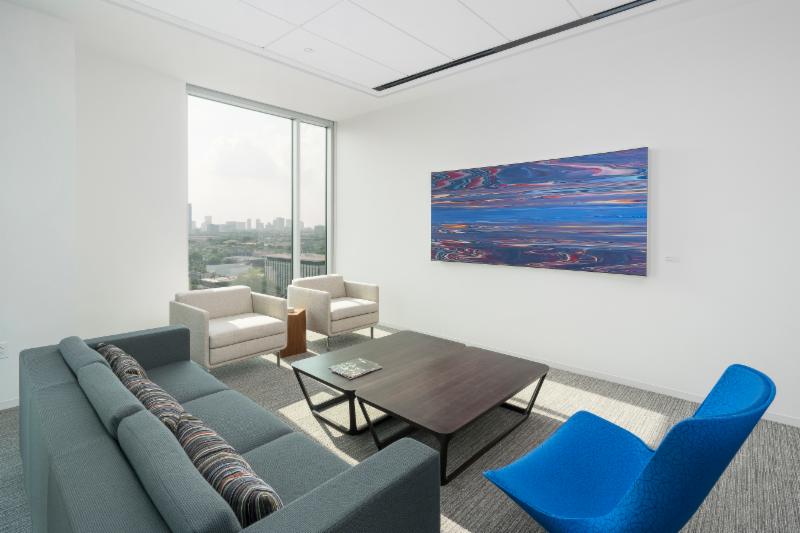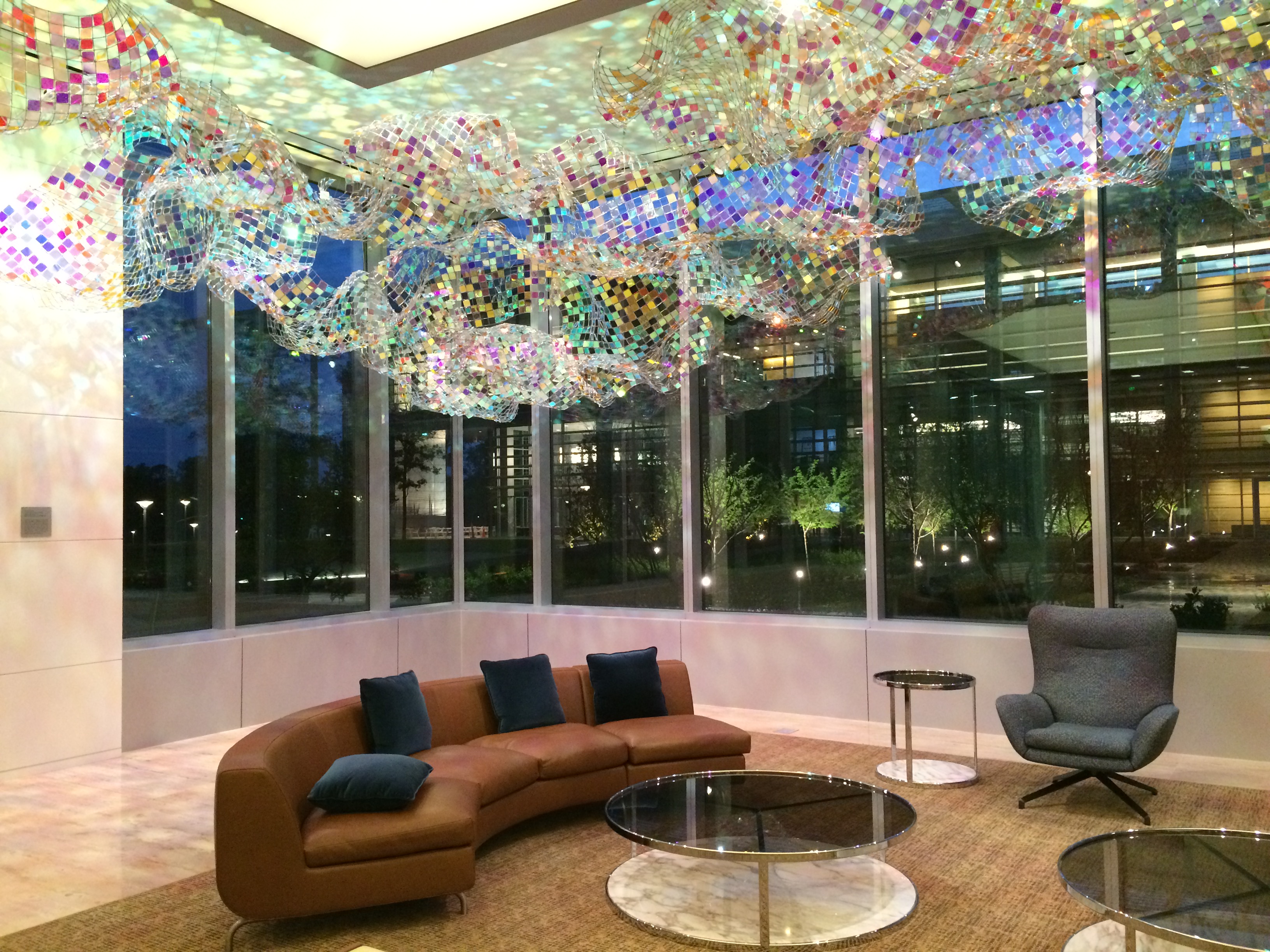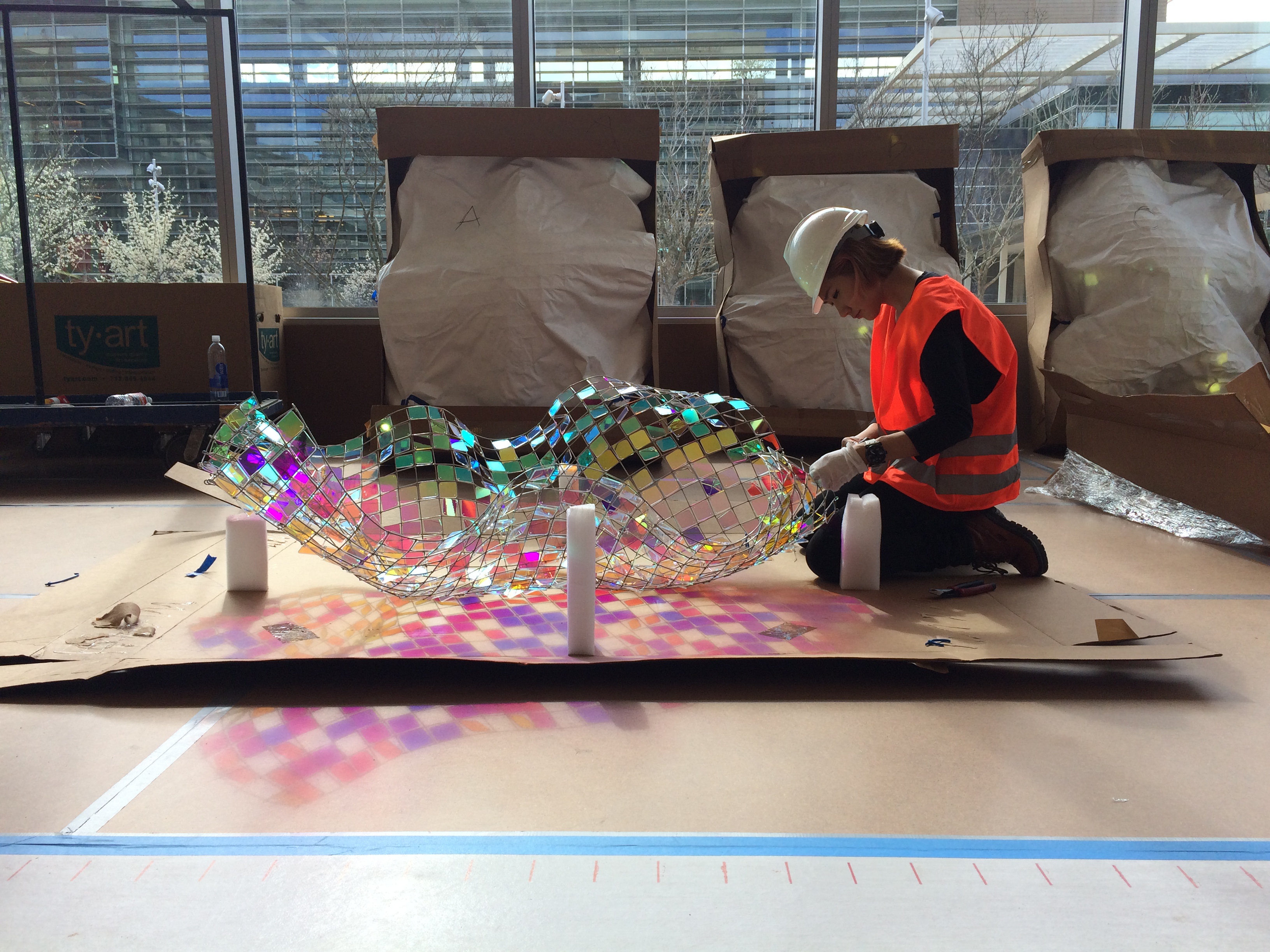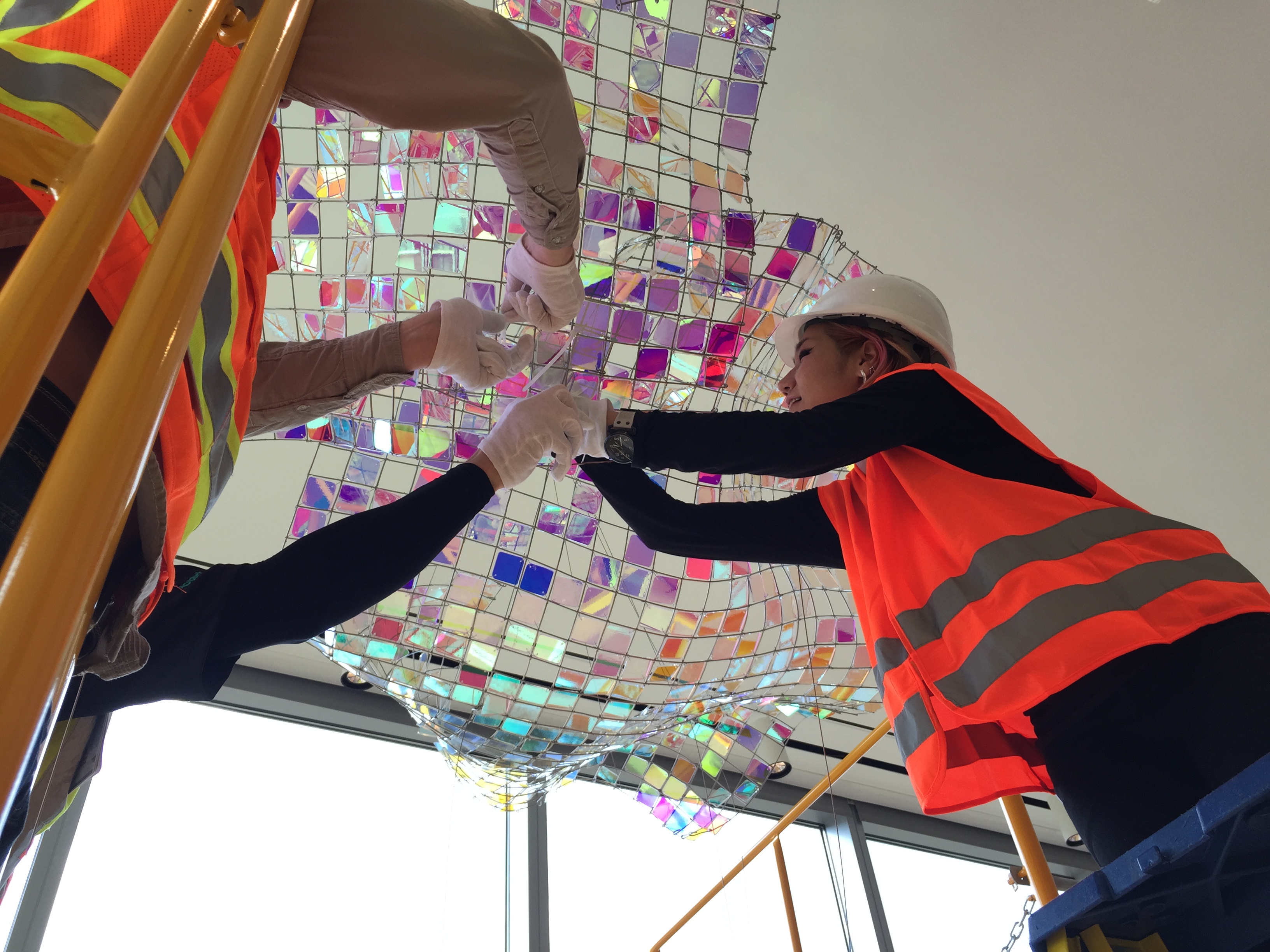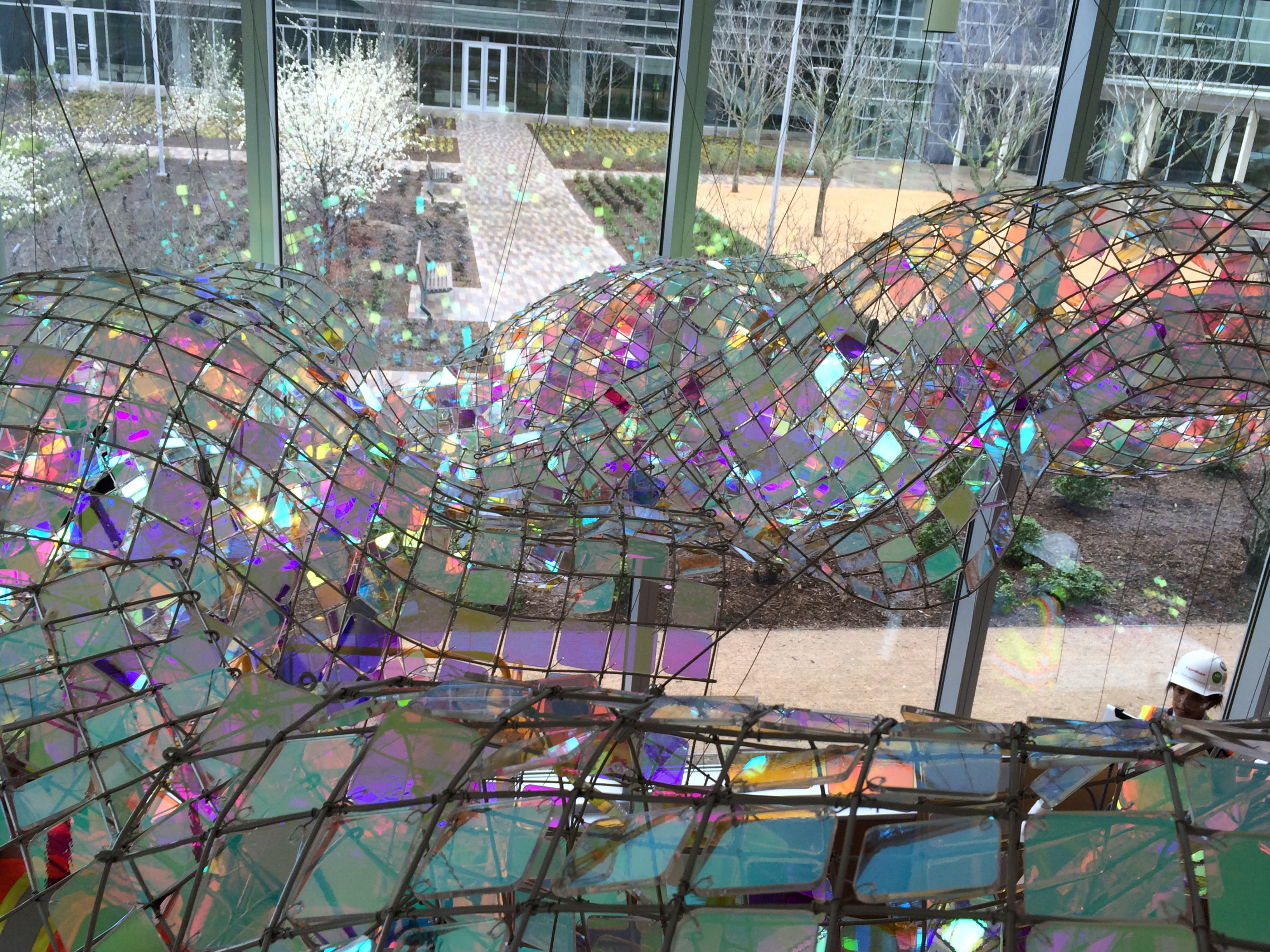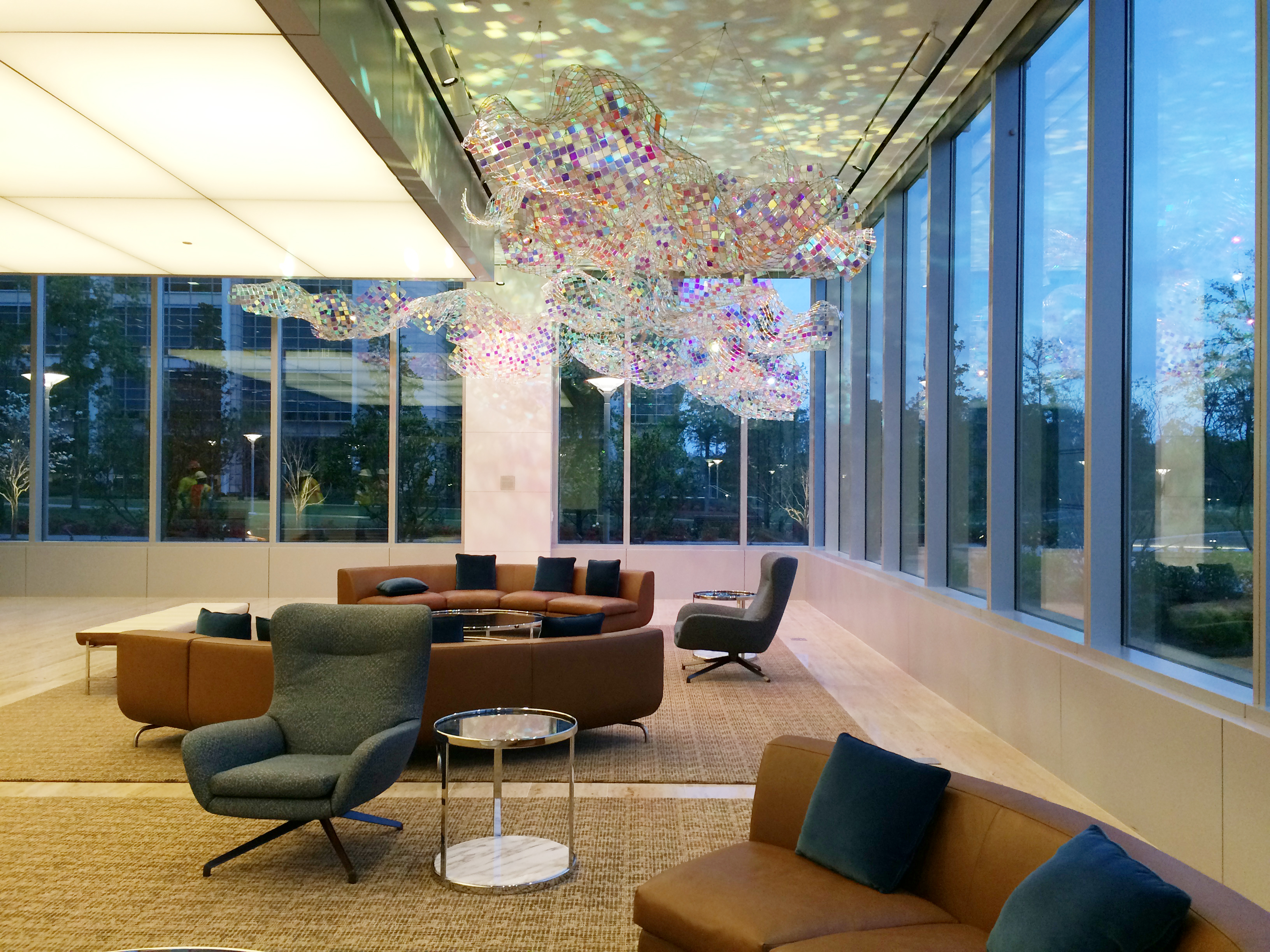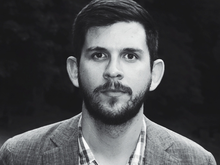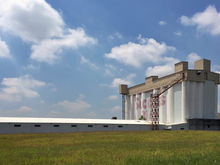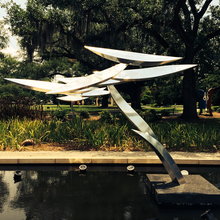When the Australian mining company, BHP announced their plans to construct a 600,000 square foot sky scraper designed by Pickard Chilton of New Haven, Connecticut along the bustling Post Oak Boulevard in Houston, Kinzelman Art was honored to be selected to place a prominent work of art within the refined lobby. On behalf of BHP and in partnership with Gensler, KAC led the process of selecting New York based artist, Sharon Louden, represented by Morgan Lehman Gallery to create a site-specific sculpture suspended from the 30 foot high lobby ceiling.
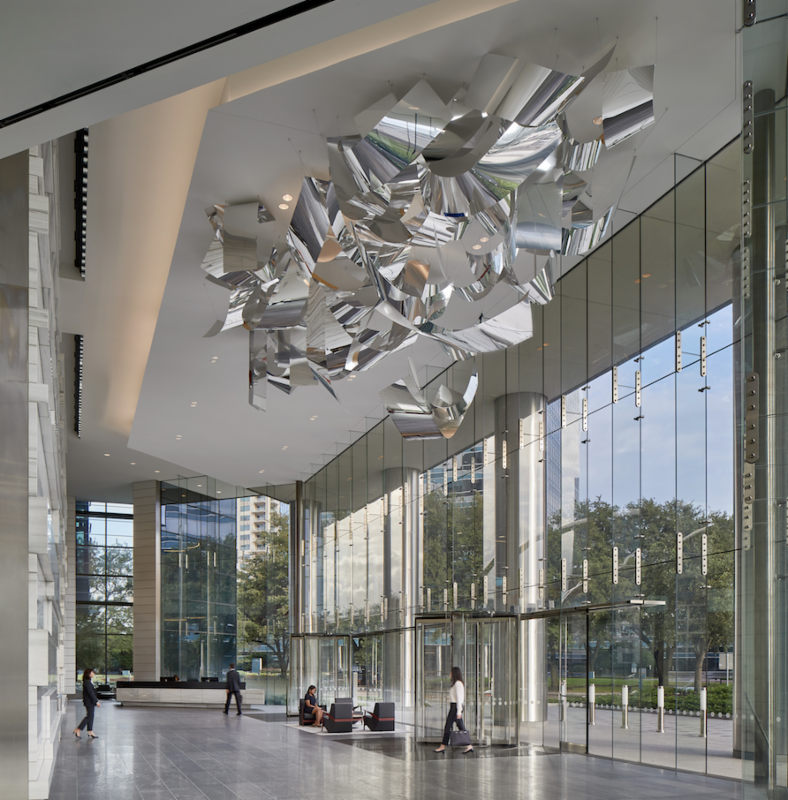
Louden's site-specific installation
Louden's ongoing exploration of compelling materials such as large swaths of mirror-polished aluminum set the stage for a dynamic, yet refined installation. The cascading sculpture creates a fluid composition that one could relate to the mining industry and natural geological formations. Among the multi-faceted aspects of the overall work of art is its ability to physically reflect the surrounding environment and changing light as well as the movement of pedestrians below.
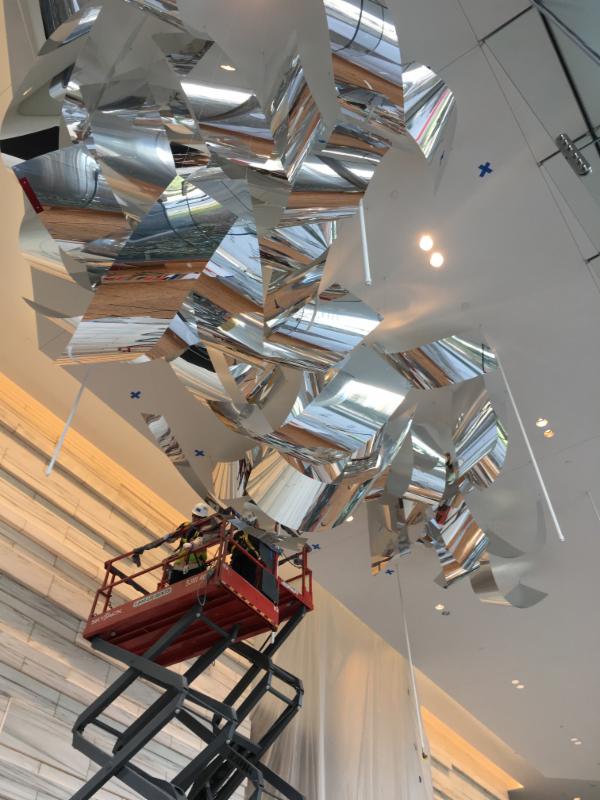
installation image
CLICK HERE to watch Glasstire's artist interview.
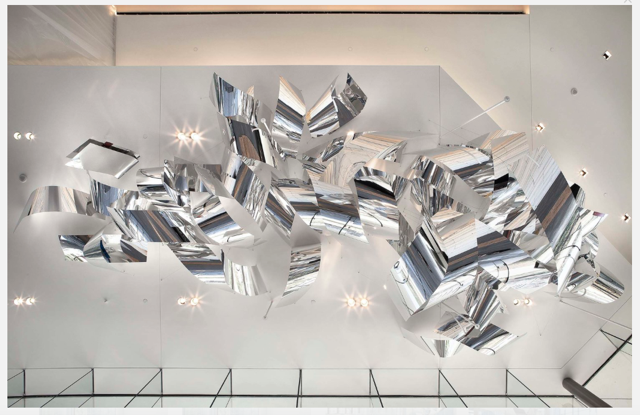
Ground view of Louden's installation
This project was completed in collaboration with representatives of BHP, Pickard Chilton, Gensler, Harvey Builders, Cushman & Wakefield, Morgan Lehman Gallery, and TYart Museum Quality Services.
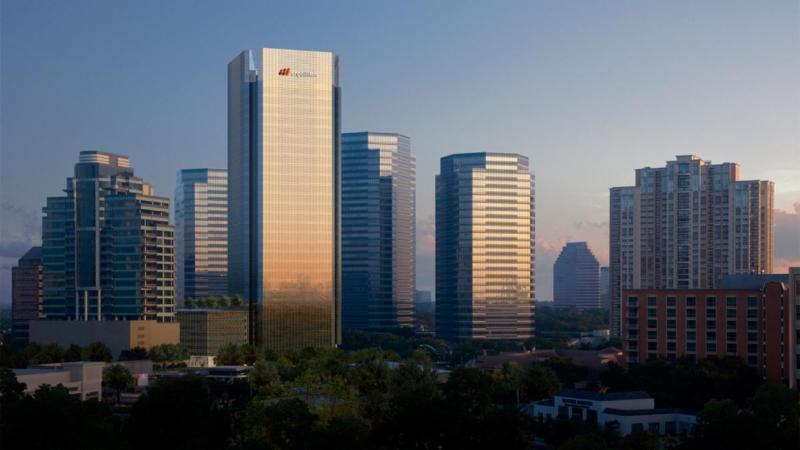
BHP building in Post Oak, Houston
Trammell Crow's Energy Center 5
Kinzelman Art is proud to announce the completion of two site-specific commissions created for Trammell Crow's Energy Center 5 building lobby located in the Houston Energy Corridor. In May 2016 we installed these unique works of art by artists, Val Britton and Ara Peterson enhancing the elegance of the interiors and infusing energy into the lobby.
"Many of my colleagues are not familiar with the dynamics and environments of the art world, therefore it can certainly be intimidating to approach, but working with Julie and her team, we found that the process was very inviting and approachable. The two artists that were selected were highly vetted, and we all feel we selected two representative pieces that are spot on for the opportunity." - Cody Armbrister, Senior Managing Director, CBRE
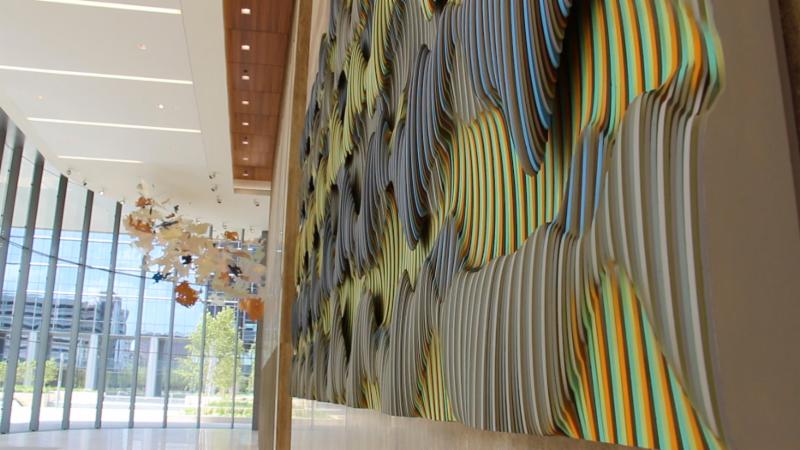
Ara Peterson, "Travertine Wavepack" and Val Britton, "Continental Collision"
Click here to view the video: Val Britton and Ara Peterson Site- Specific Installations.
Vitol
With more than 40 offices worldwide, international energy trading company, Vitol, has one of its largest operations in the Upper Kirby neighborhood of Houston, Texas. Kinzelman Art organized the relocation and exhibition of Vitol's art collection, (as managed by Kinzelman Art since 2010), to Vitol's new award winning offices designed by interior architecture firm, PDR Corporation. Successfully working in tandem with one another, the modern art collection and the sophisticated interior architecture expands one's experience of the typical corporate environment by creating a progressive, museum-like work place environment.
"We have an appreciation and understanding of the unique role that art can have in the workplace. Over the years, Julie and her team have been instrumental in the selection of new pieces to add to our collection. Our new work space was designed to intentionally highlight certain works, so proper selection and placement was critical. Kinzelman Art made that process very simple and the end result is better than what we had initially envisioned." -Scott Adams, HR and Administration, Vitol
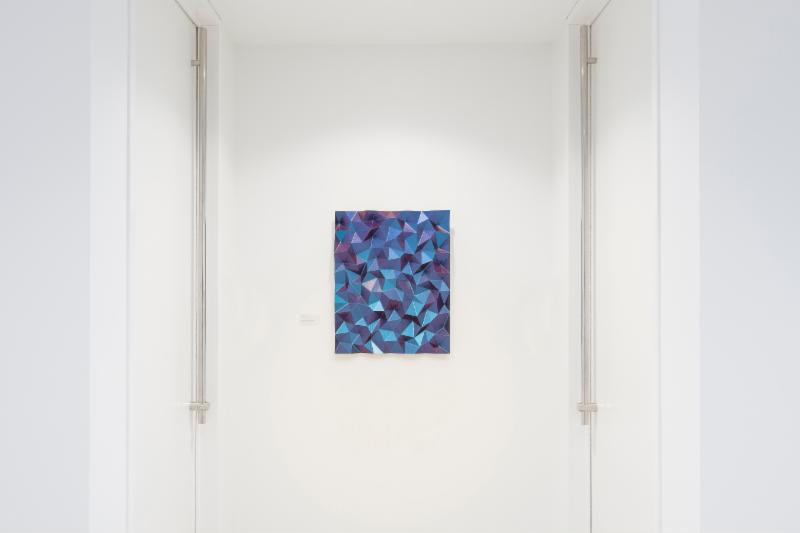
Christian Eckart, "Hexagonal Perturbation"
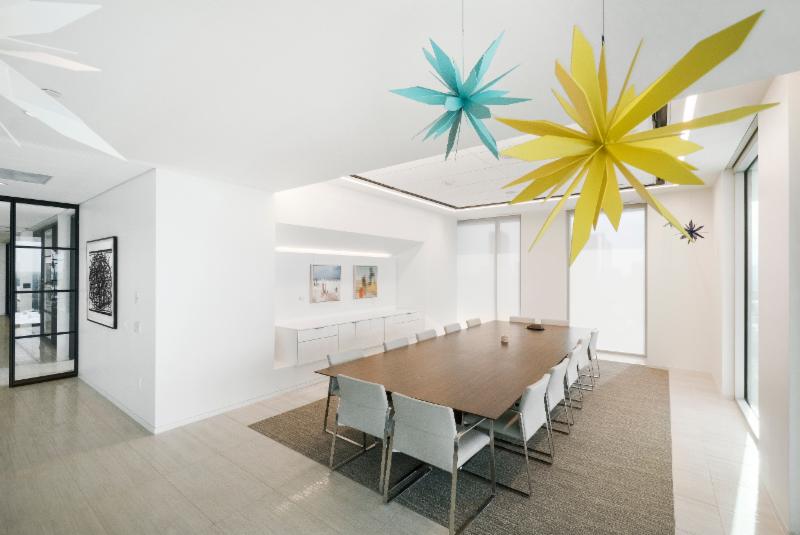
Terry Winters, "Picture Cell", Rusty Scruby, "Family" and "Blue Bucket", and Hana Hillerova, "Houston Can You Hear Me?"
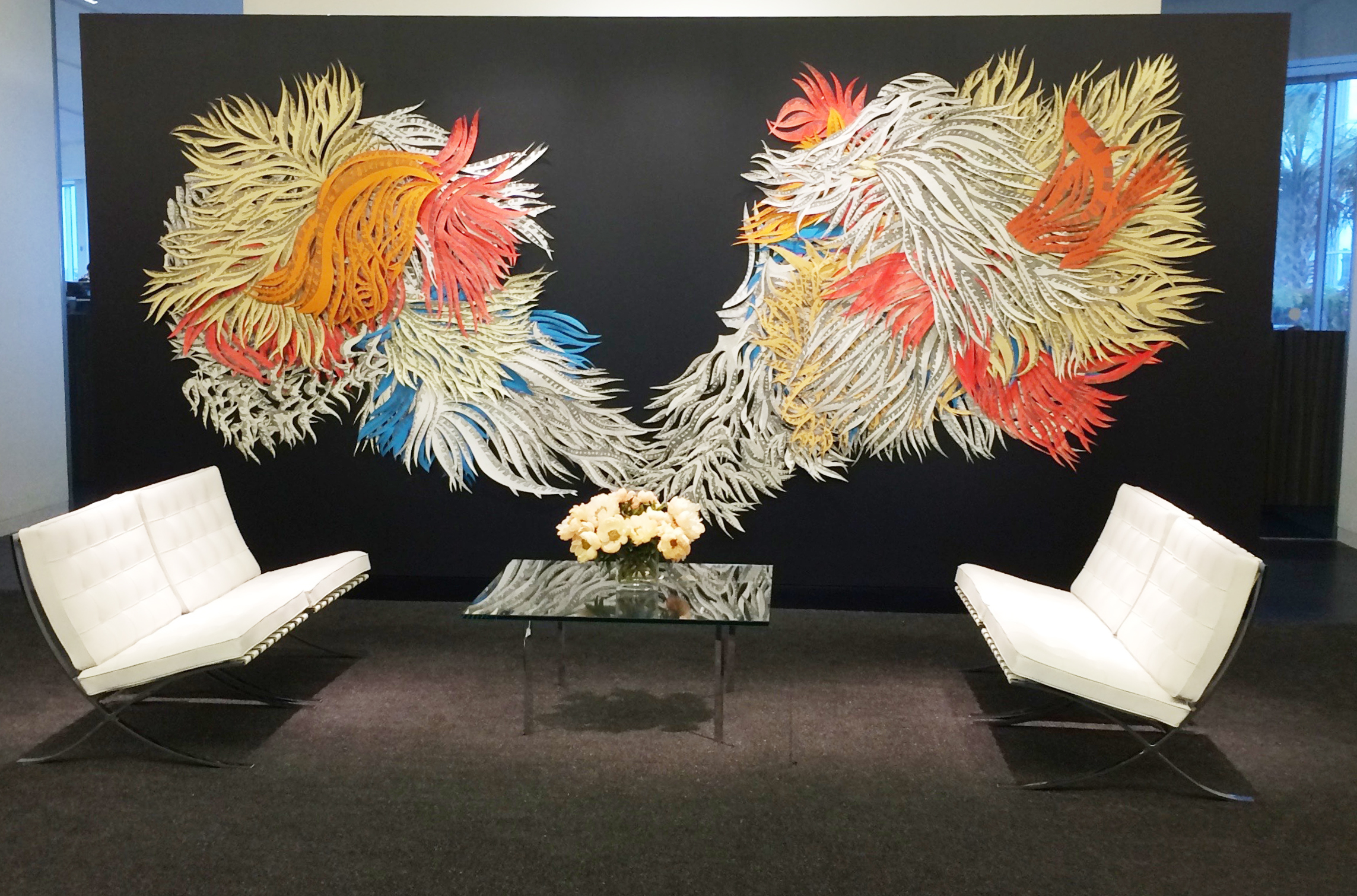
Kinzelman Art Consulting recently organized a temporary exhibition with Houston based artist Natasha Bowdoin at HOK Architect’s crisp and beautiful new space. Bowdoin’s The Daisy Argument Revised is a striking and dynamic spray of feathered elements that recall the aquatic flora of her native Maine. She has installed many iterations of this layered cut paper piece over the years, the first being in 2010.
Professor of Painting and Drawing at Rice University, Bowdoin is known for her painstakingly detailed cut paper installations and collages. Process and content are equally important to Bowdoin in her work. She spends hours hand-cutting the paper elements in direct and visceral response to the even more labor-intensive drawings and transcriptions of significant literary texts. Here the artist has fluidly recorded the text of Lewis Carroll’s Alice’s Adventures in Wonderland and portions of Through the Looking-Glass throughout the abstract composition of the piece.
Natasha Bowdoin’s The Daisy Argument Revised will be on view at HOK through mid-December, 2015.
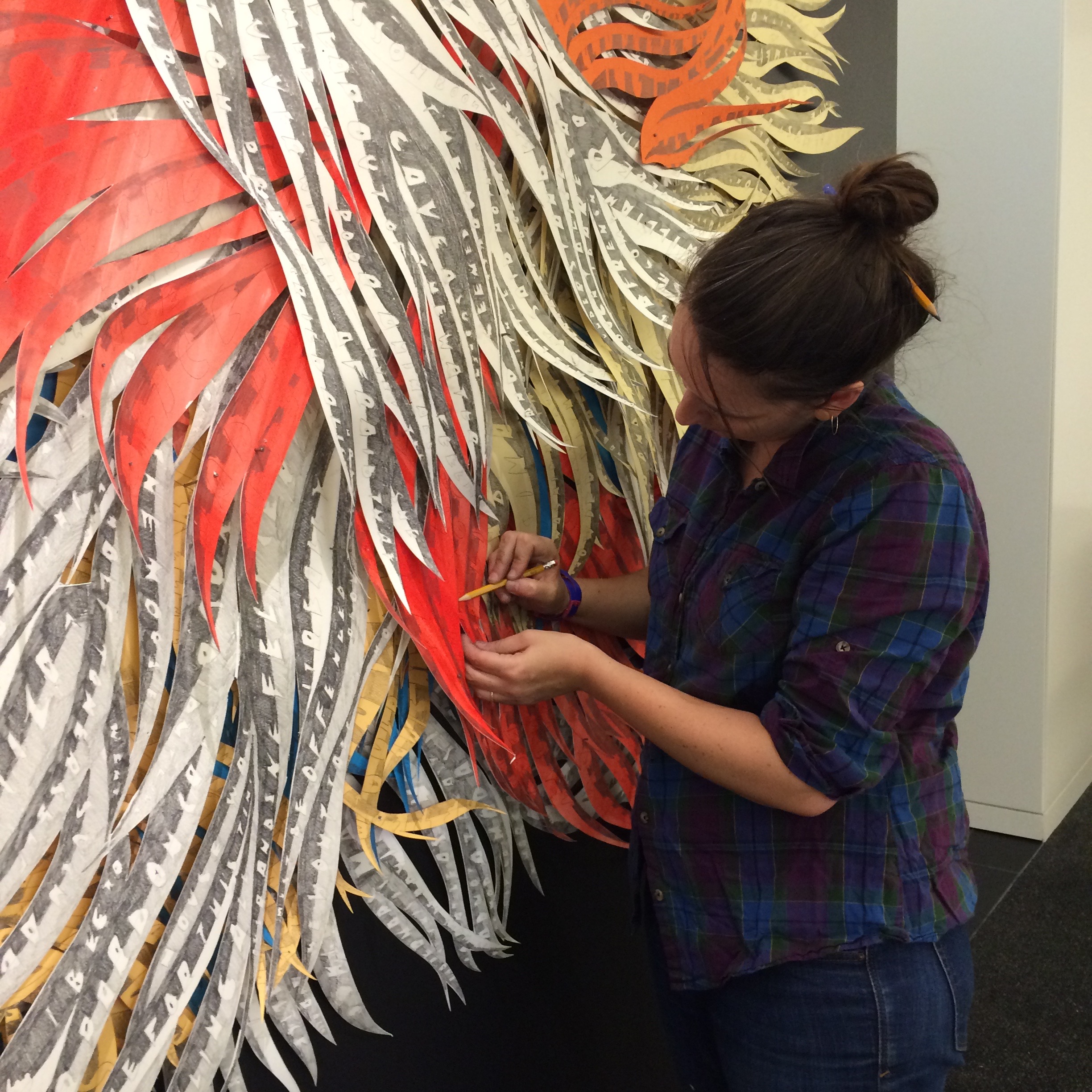
During the installation process, where Natasha intuitively attached individual elements to HOK’s feature reception wall, KAC’s Adrienne Johnson had a conversation with the artist about the piece and about her work in general.
Q: What was the first text you transcribed?
A: Alice’s Adventures in Wonderland. Before, when I first started to use writing in my work it was much more fragmentary. I would transcribe clips of overheard conversation, portions of remembered song lyrics, and bits of my own stream of conscious writing: things that were floating around the studio as I worked. My work is now made up of other authors’ texts. I was drawn to the idea of using others’ writing as a kind of found, raw material, in that it introduced an element into the work and process that wasn’t personal to me and wasn’t something I could predict. This particular piece includes transcriptions of the entirety of Alice’s Adventures in Wonderland, and a portion of Through the Looking-Glass.
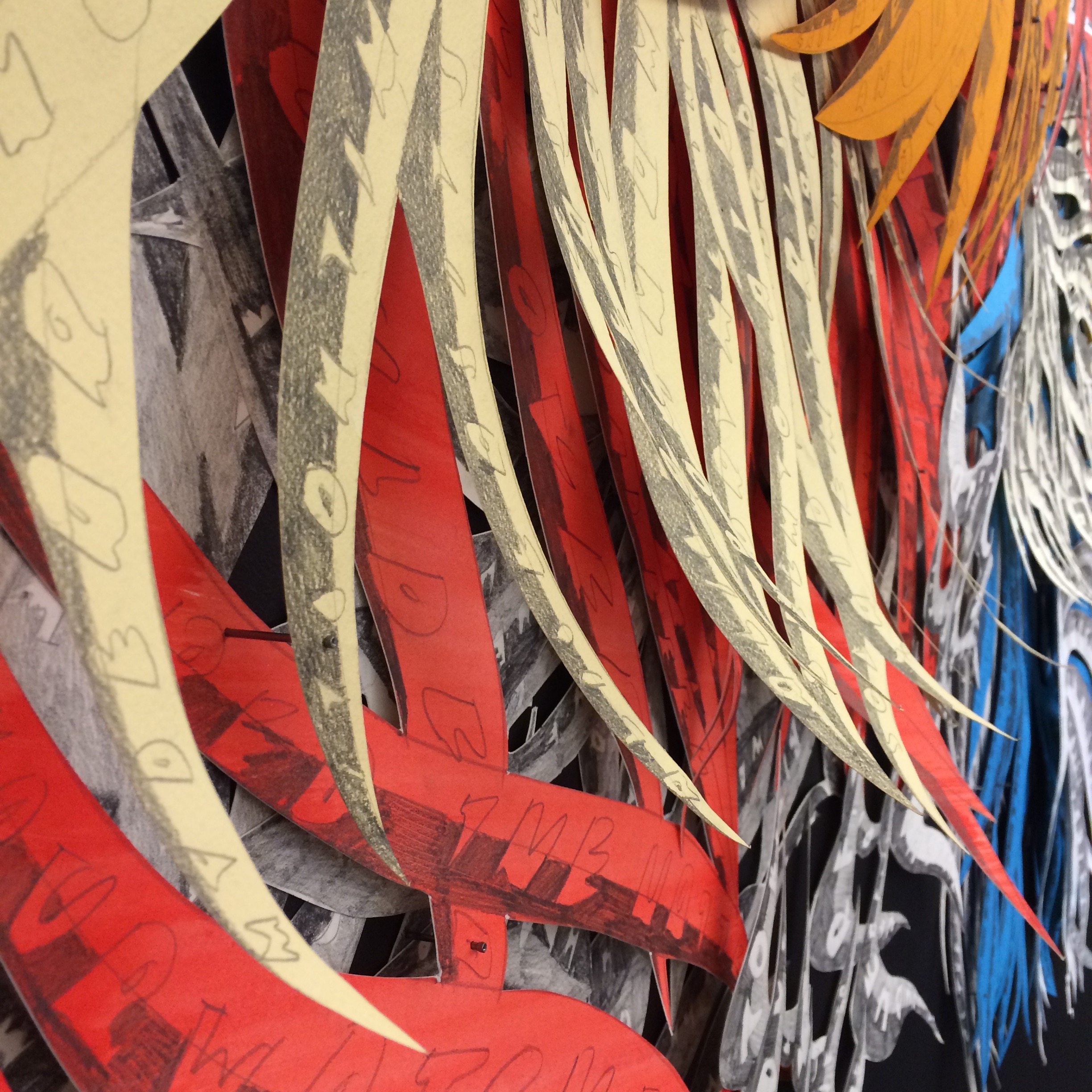
Q: How long does it take you to make a piece like this, in its original iteration?
A: This piece in my mind will never be finished. Firstly, I want to complete the transcription of Carroll’s second Alice book. As I mentioned before, I have only partially completed Through the Looking-Glass. Secondly, while at some point the drawings and component parts will be complete, I see this piece staying in flux and transition, resisting any one finite form. The piece is intuitively recombined in each new space it comes to inhabit, never going together the same way twice. Each installation is to a certain extent improvisational. Drawings for a particular installation are usually in the making for several years, as I tend to work on a lot of different pieces at once. If I sat down and focused solely on one installation alone it would come together faster but I like splitting my attention across different works and projects in the studio, in the hopes that different pieces might influence one another in a way I can’t predict.
Q: Is it your intention that viewers read your works?
A: I hope people are neither prevented from reading the work nor feel obligated to. I’m not particularly interested in using text as a means to directly articulate a message or illustrate a meaning. There is a tradition of text in art, established especially in certain kinds of artistic investigation that really took off in the 1960s, that focuses on text as a device for communication or a signifier of meaning. I’m more interested in and inspired by artists like León Ferrari, Robert Smithson, and Mira Schendel, who I think were really interested in the abstract potential of text. People can look for meaning in my drawings, but the structure defies any sense of logic. I don’t give anyone a specific place to begin. Text I think isn’t always straightforward, obvious, or transparent. I like channeling this room for flexibility, ambiguity, and a text’s potential.
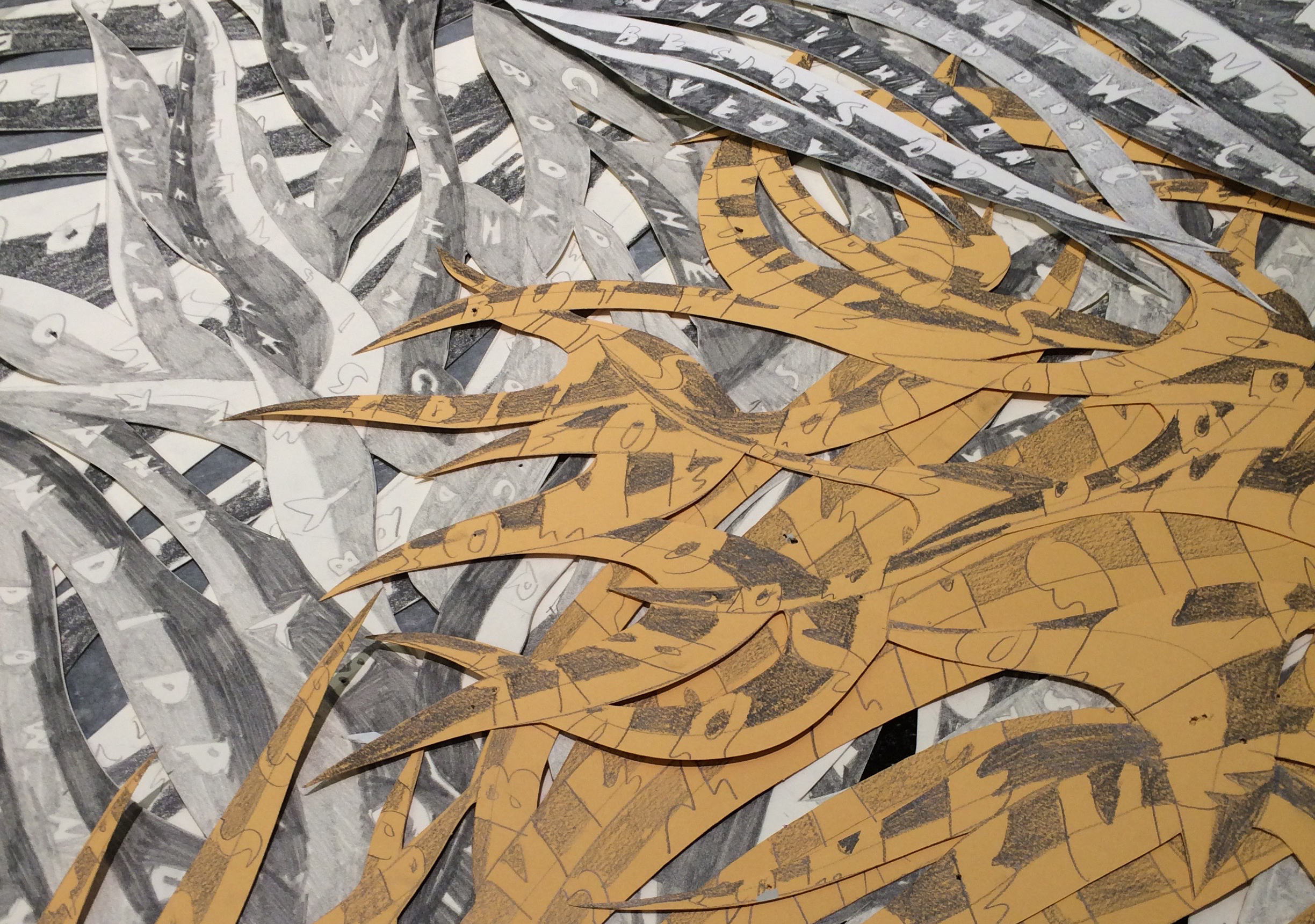
Q: Will you tell me about the inspiration for the forms themselves?
A: A lot of the pattern I gravitate towards as source material is nature based. I’m fascinated with how humans over time have tried to depict and document the world around them. With this piece, I’ve had people tell me that they are reminded of life under the sea, seaweed and sea fans for instance. These weren’t forms I intentionally had in mind but I guess it’s impossible for me to get away from where I grew up. The natural surroundings of my home state of Maine and elements of my upbringing I think work their way into my work subconsciously.
Originally this piece was kept in a palette of black, white, and yellow in that I was thinking of the color of type in a book, and of Alice’s blond hair. Eventually I began to add more and more color in an attempt to reference the wackiness and the vibrancy of Carroll’s Wonderland.
Another reason the work remains in flux is that in a way it’s meant to mirror Alice’s own experience. As she travels through Wonderland she is constantly shrinking or expanding to make her way through the space. There’s a lack of fixed boundary to her own body as she continues on her adventure. This piece is meant to evoke that sense of boundarylessness I find so appealing.
See the installation time-lapse video here:
KAC had the privilege of commissioning Korean artist Soo Sunny Park to compose an impressive site-specific installation in a corporate reception in The Woodlands. Capturing Light is made up of 22 individual panels and 12,000 dichroic acrylic tiles that scatter ever-changing patterns of refracted light through the space. We thoroughly enjoyed working with Park throughout the entire process from developing the initial concept, to creating digital and physical models. After months of careful collaboration and planning, it is wonderful to see this beautiful installation come to life and transform the surrounding environment.
Special thanks to CYNTHIA-REEVES, New York and TYart Art Handling.
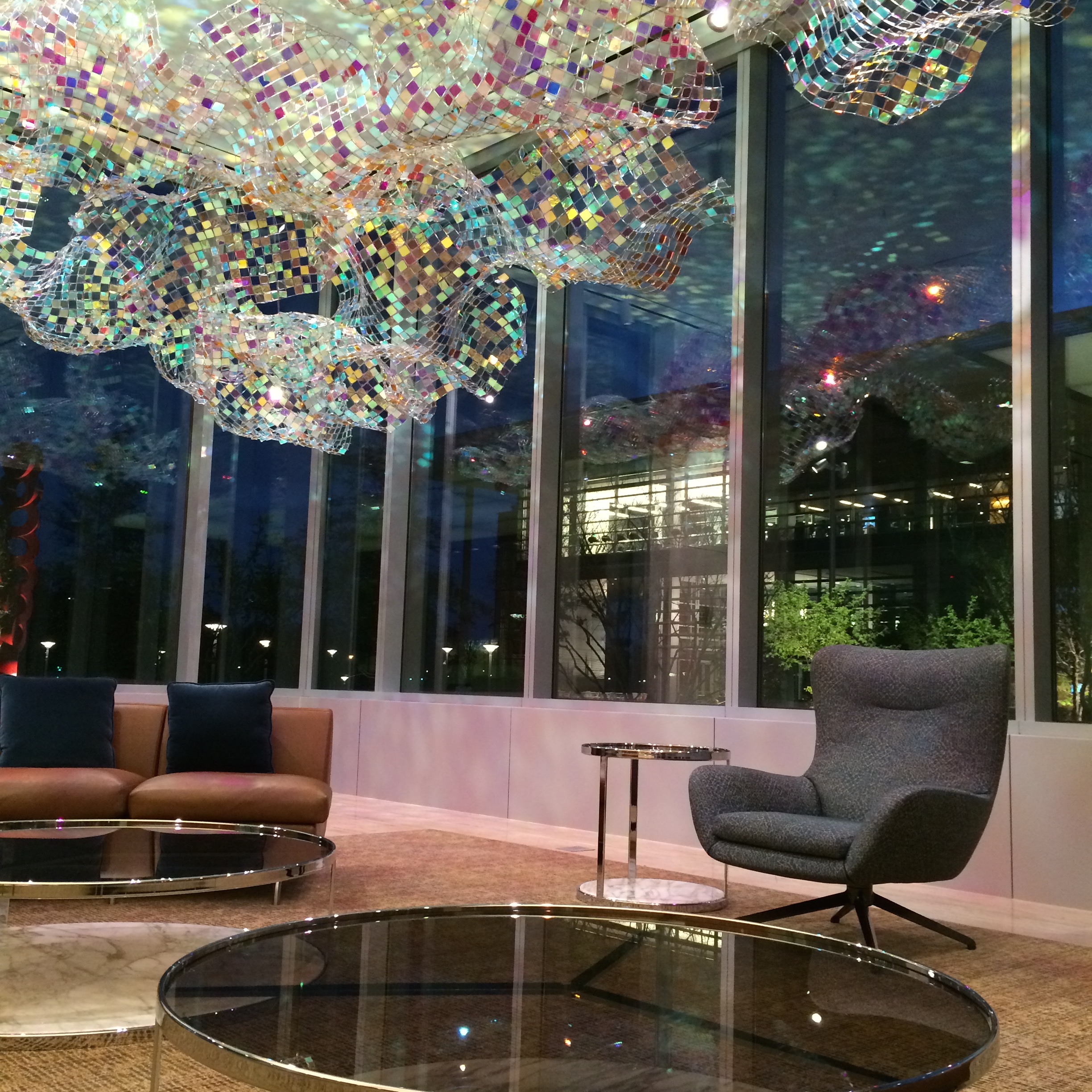
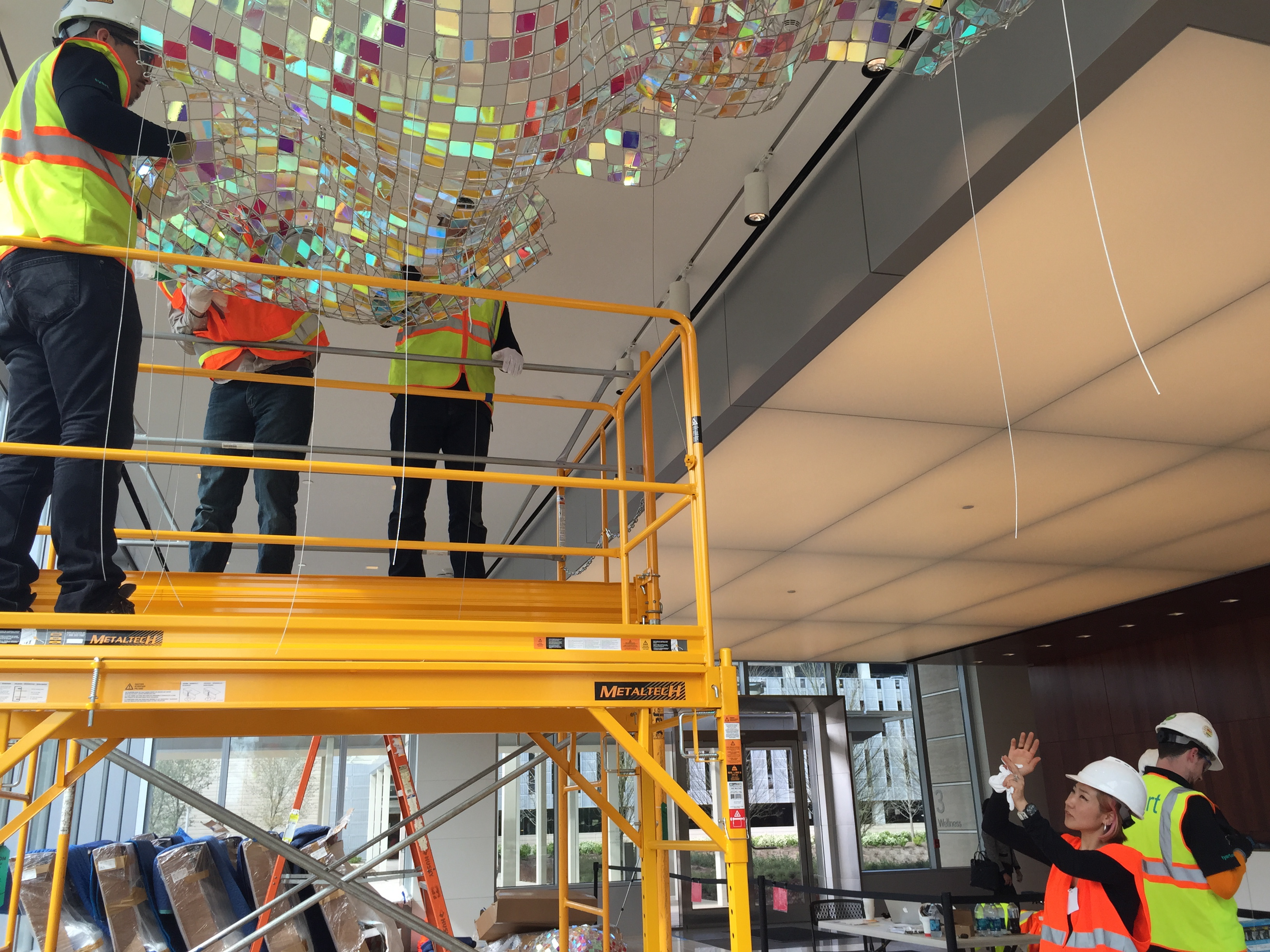
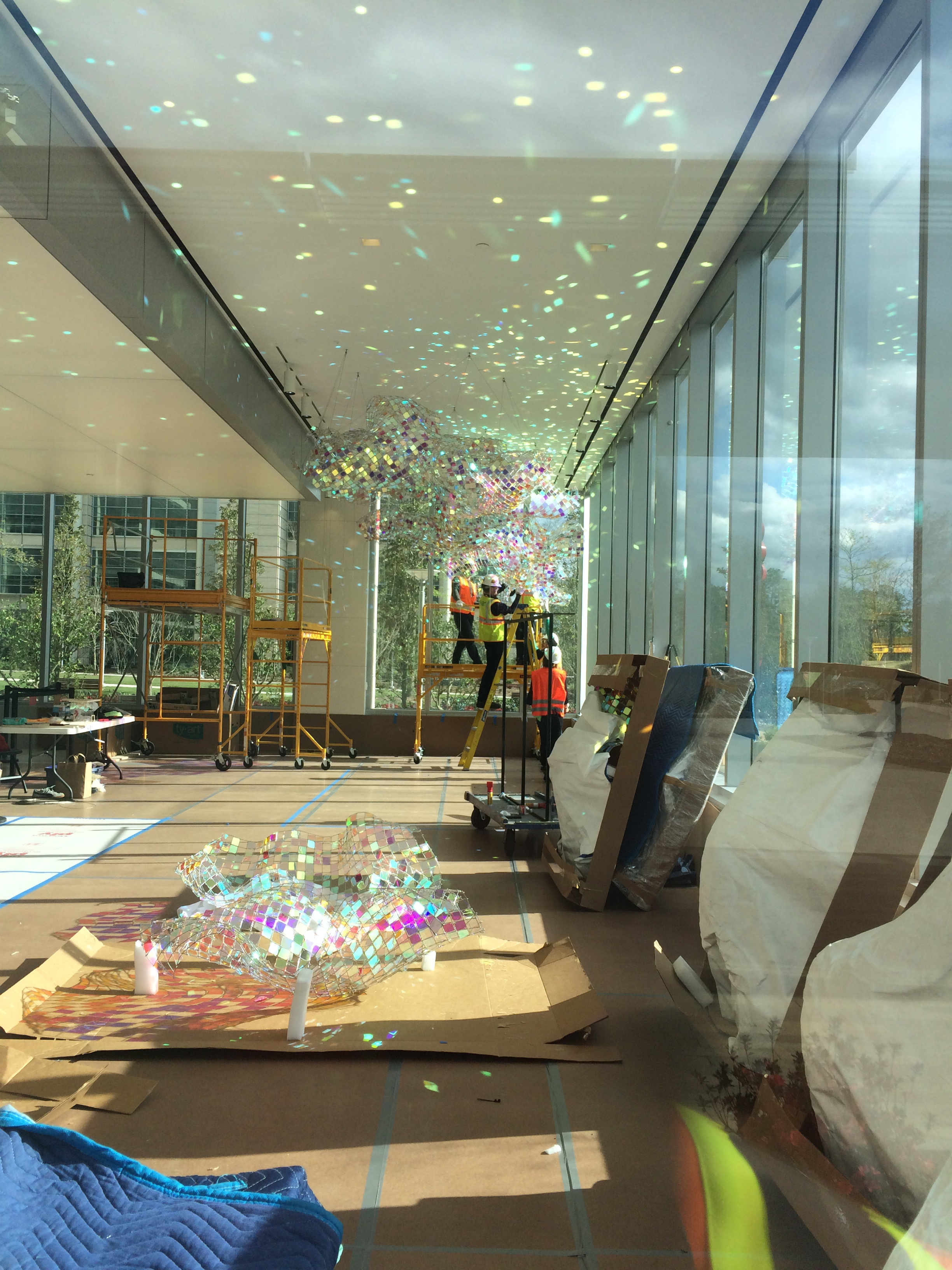
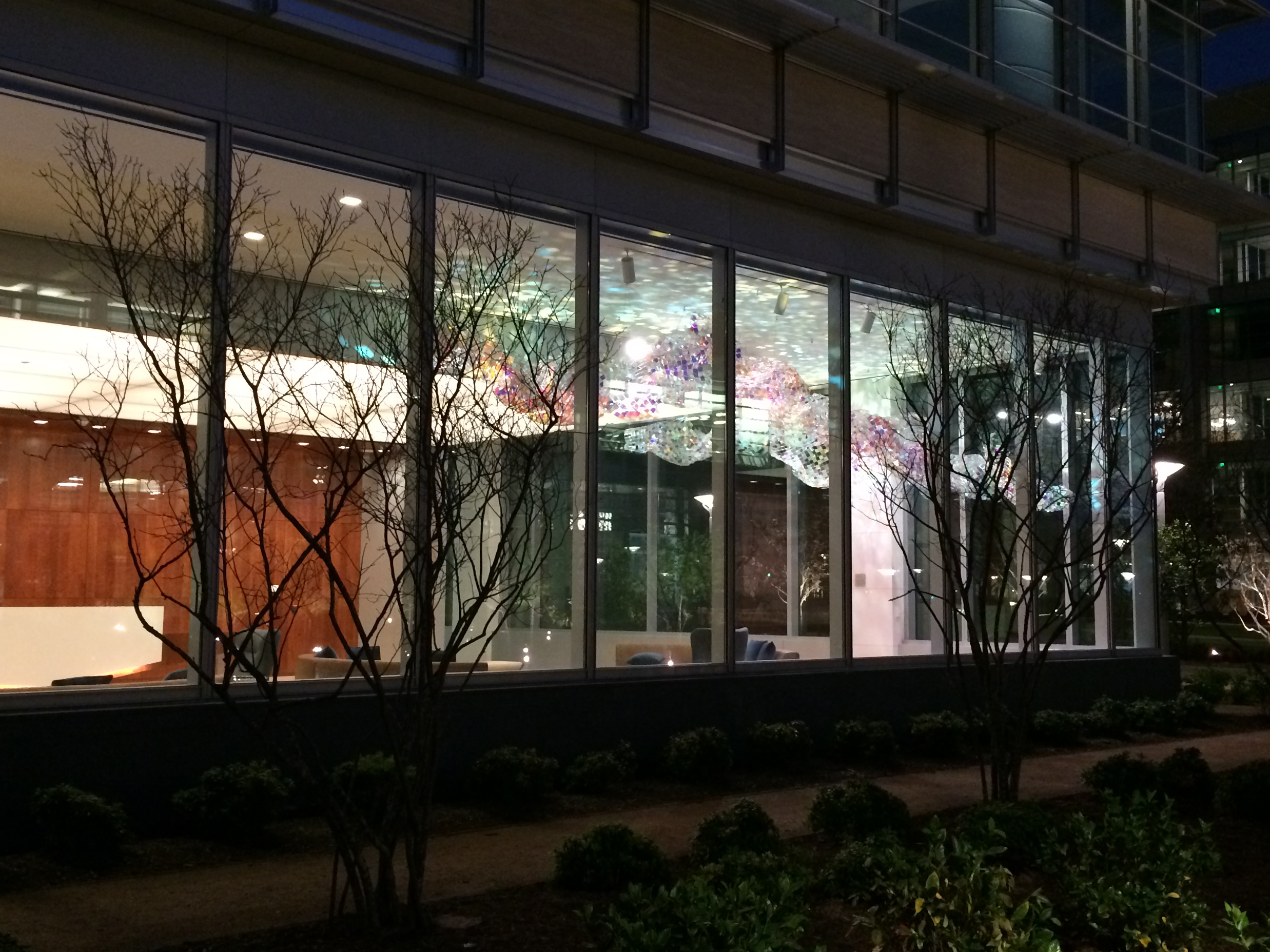
See our time-lapse video of the week-long installation:
